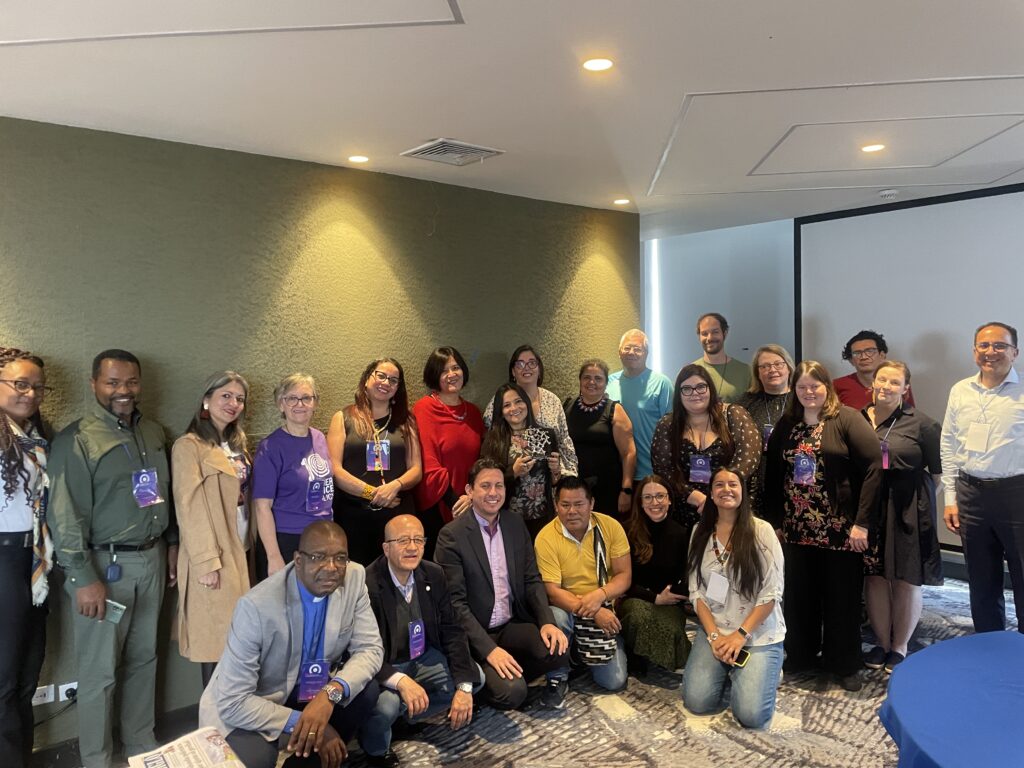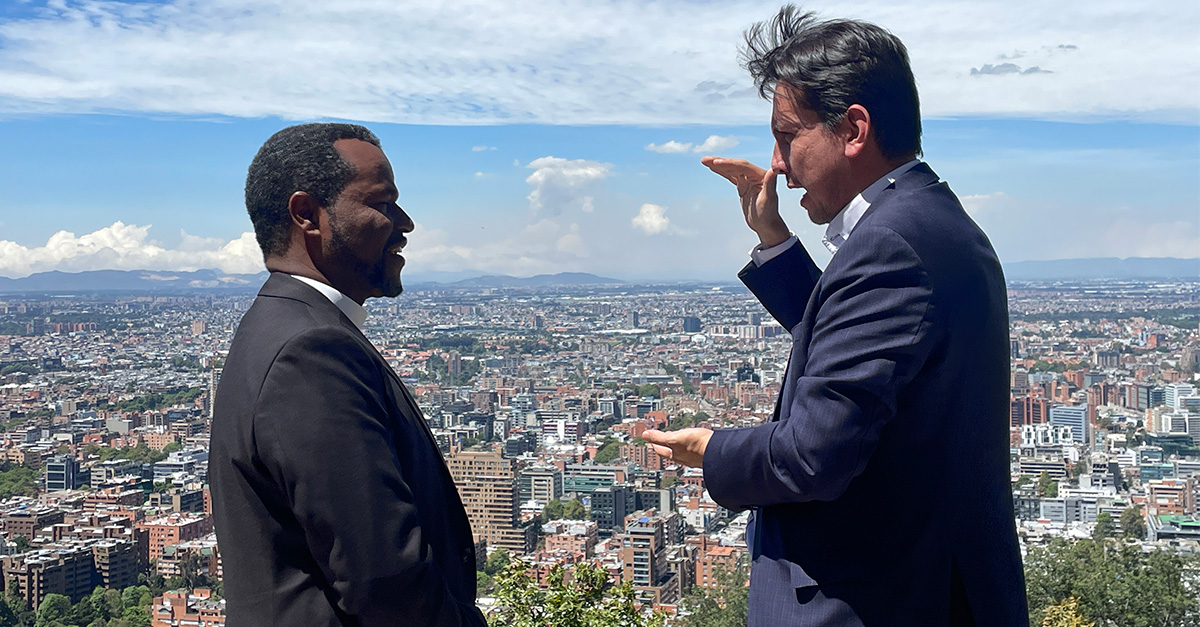Theology of peace
At the heart of Christianity is the message of peace. The Bible talks about peace hundreds of times, yet in theological discourse peace rarely gets the meaning and attention it deserves.
In collaboration with partners, the aim of the Felm´s peace theology project is to clarify and deepen theological thinking about what peace means, how theology can help achieve peace in the midst of conflicts, and how religions can speak the language of peace.
Backround of the project
Peace initiatives and reconciliation processes form a complex fabric, where local, national, regional, and international actors play various roles. Therefore, it is important to seek adaptive and locally led solutions for peace as well as context-specific interpretations of peace. Churches and faith-based organisations are important actors in peace and reconciliation. When faith communities choose to actively use religious language that promotes peace and teach peaceful conflict-solving methods, the impact is notable. In many communities, the churches have a special position in addressing both the grass-root level as well as leaders, and this expertise could be harnessed to promote peace and reconciliation. Therefore, supporting faith actors and engaging in theological dialogue is critical.
The project seeks to deepen both methodological and thematic learning and sharing of good practices between churches engaged in peace and reconciliation work in their own contexts and to jointly explore the theological aspects of peace and reconciliation. To do this, the project seeks to create a safe space for continuous reflection between peace, reconciliation, and theology and to co-develop practices and approaches for peace-promoting, life-based theology. The project supports the interpretations of Christianity and the Bible that support inclusivity and equity and empowers the churches in taking an active role in peacebuilding. Subsequently, the relevance of peacebuilding in churches becomes more visible. The project aims to inspire the church partners that don’t yet participate in peacebuilding and share good practices with them, so they can commence working in this field.
Many church workers currently engaged in peace work are alone in their demanding task, which is why theological discussion with others can generate new insights and help deepen one’s own thinking about the relationship between peace and theology. This will help to be more active in peace work also in the Christian context.
The project is global in scope, engaging Felm’s church partners working on peace and reconciliation as well as ecumenical partners working with same partners and interested in developing knowledge and practise around . The project will be implemented over three years period. As part of the implementation of the project, there will be multiple peer-to-peer meetings, both face-to-face and online, joint knowledge creation and possibilities for capacity building.
The project approach, key strategies and methodologies
The project deepens the theological self-understanding of the participants and co-creates new knowledge on peace and reconciliation theology in context. The whole process is documented, and “theological diaries” are kept, to capture the discussion and findings and evolving reflection. The project will also co-create new content and resources on peace and reconciliation by churches. The face – to -face meetings take place in different locations and the themes are those found most important in the planning workshops, such as youth, gender, reconciliation etc. Each of the thematic theme explores both theology and practical considerations emerging from the context.
All the meetings and material aim to create and deepen the theology of reconciliation and peace, and therefore, the theology is embedded in all the content of the project.
The project has held peer meetings where religious actors engaged in peace work can together receive peer support and learn about topical peace themes, such as the impact of gender justice in peace work and the participation of young people. Joint work takes place by familiarising oneself with the operating environment of the partner churches. In November 2023, church actors met in Bogotá, Colombia, where the long-running civil war is affecting the work of the church in many ways. The meeting focused on reconciliation and gender issues in the conflict and peace process in Colombia. In addition, it was examined how theology relates to the everyday life and reality of communities in Colombia and what kind of ideas practical work brings to theological thinking. As part of the seminar, representatives of both the Colombian government and the international community were met and the needs and recommendations of communities involved in the work of the church were raised.
Cooperation and peer sharing are also realised through virtual meetings, where theological discussion continues and the challenges and successes of peace work are shared.
The vision of churches as peacebuilders is born and strengthened through theology. That is why it is important that peace is also discussed in churches and in the language of theology.
Additional information: Adviser on gender justice, Master of Theology, Päivi Linervo, paivi.linervo@felm.org


